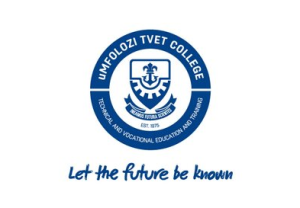The Essentials
Type of Institution: University
Fees per Semester: R25 000 – R55 000
Address: 511 Griffiths Mxenge Highway, Umlazi, KwaZulu-Natal,4031, South Africa
Phone Number: +27 31 907 7111
Chancellor: Sandile Zungu
Vice Chancellor: Professor N Sibiya
Number of students: 13 000+
Website: https://www.mut.ac.za/
Email: info@mut.ac.za
Table Of Contents
- Overview
- Contact Details
- Address
- Location
- School Fees
- Courses & Programs
- Vacancies and Entry Requirements
- Logo
- Notable Alumni
- Pros and Cons
- Author’s Review
Overview
Mangosuthu University of Technology (MUT) is a public university located in Umlazi, Durban, South Africa. It was founded in 1979 with a focus on providing technological education and skills to historically disadvantaged communities.
Vision and Mission
Vision: MUT aims to be a leading institution of higher learning that offers technological and vocational education to uplift communities through its programs and partnerships.
Mission: The university is dedicated to producing skilled graduates equipped to meet the demands of industry, promoting innovation, and contributing to the socio-economic development of South Africa.
Research and Innovation
MUT has a growing focus on research, particularly in areas that can have an immediate impact on communities. The university fosters collaborations with industry and government to ensure its research output addresses real-world challenges.
Student Life and Support
MUT provides a vibrant student experience with numerous student organizations, sports, and cultural activities. The institution offers student support services including academic counseling, career guidance, and financial aid for eligible students.
Campus and Facilities
The university’s campus in Umlazi is equipped with modern lecture halls, laboratories, a library, and recreational facilities. MUT emphasizes creating an environment conducive to learning and development.
Community Engagement
MUT is deeply committed to community development and outreach. Its programs often involve service learning and community projects that allow students to apply their skills in real-world contexts, addressing issues such as public health, education, and infrastructure in underprivileged communities.
Industry Partnerships
MUT has established strong ties with industry partners, ensuring that its curriculum is aligned with the needs of the workforce. These partnerships also facilitate internships, job placements, and collaborative research.
Notable Achievements
The university has gained recognition for its role in empowering students from disadvantaged backgrounds, producing graduates who are competitive in the job market. It has been instrumental in addressing the need for skilled professionals in South Africa’s growing economy.
Mangosuthu University of Technology Contact Details
You can contact Mangosuthu University of Technology via their landline, email or you can visit their website for further contact details.
Phone Number: +27 31 907 7111
Website: https://www.mut.ac.za/
Email: info@mut.ac.za
Mangosuthu University of Technology Address
511 Griffiths Mxenge Highway, Umlazi, KwaZulu-Natal,4031, South Africa
Mangosuthu University of Technology Location
Mangosuthu University of Technology is located in the city of Durban under the KwaZulu-Natal province of South Africa in Umlazi township on Griffiths Mxenge Highway.
Mangosuthu University of Technology Fees
Mangosuthu University of Technology ‘s fees is currently standing at R25 000 – R55 000 per semester depending on the program you are studying and the level of degree you are studying. Please contact the institution or visit them to get the latest fees structure as it can change at any term or semester.
Mangosuthu University of Technology Courses & Programs
Mangosuthu University of Technology (MUT) offers a range of diploma and degree programs across its three faculties.
Faculty of Engineering
This faculty focuses on technical and engineering disciplines, with an emphasis on hands-on learning and industry readiness. The programs typically lead to National Diplomas or Bachelor of Technology (BTech) degrees.
Civil Engineering
Electrical Engineering
Heavy Current
Light Current (Electronics)
Mechanical Engineering
Chemical Engineering
Surveying
Faculty of Natural Sciences
The Faculty of Natural Sciences offers courses that focus on applied sciences and research. These programs are geared towards health, environmental studies, and the biological sciences.
Analytical Chemistry
Agriculture (Specialization: Animal Production or Crop Production)
Biomedical Sciences
Community Extension
Environmental Health
Nature Conservation
Faculty of Management Sciences
This faculty offers a range of business, management, and administration-related courses designed to equip students with the skills needed for the business world.
Accounting
Cost and Management Accounting
Business Administration
Marketing
Human Resources Management
Office Management and Technology
Public Administration
Extended Curriculum Programs
These are foundation or bridging programs designed to support students who may not meet the regular entry requirements. These programs allow students to gradually ease into the full course load of their chosen field.
Short Courses and Certifications
MUT also offers various short courses and certifications, often designed in collaboration with industries to meet specific skills needs. These are usually in the fields of engineering, management, and information technology.
Mangosuthu University of Technology Vacancies and Entry Requirements
Entry Requirements
MUT has specific entry requirements for its programs, depending on the faculty and level of study (National Diploma, Bachelor’s Degree, BTech, etc.).
Undergraduate Entry Requirements
General Minimum Requirements
National Senior Certificate (NSC) or equivalent with a minimum achievement rating.
Specific subjects and performance levels (depending on the program).
Mathematics and Physical Sciences are often required for technical and engineering programs.
Some programs may have additional requirements such as portfolios (for design-related courses) or interviews (for courses like Biomedical Sciences or Community Extension).
Faculty-Specific Requirements
Faculty of Engineering
National Diploma Programs: NSC with a pass in Mathematics (not Mathematical Literacy), Physical Science, and English. The required APS (Admission Points Score) usually ranges between 26–32, depending on the specific engineering program.
BTech Programs: Completion of a National Diploma in the relevant field.
Faculty of Natural Sciences
National Diploma in Biomedical Sciences: NSC with passes in Mathematics, Physical Science, Life Science, and English. A minimum APS of 28–32 is generally required.
Agriculture and Nature Conservation: NSC with passes in Mathematics, Agricultural Science, or Life Sciences.
Environmental Health: NSC with strong performance in Mathematics, Life Sciences, and Physical Science.
Faculty of Management Sciences
National Diploma Programs (Accounting, Marketing, HR Management): NSC with passes in Mathematics or Mathematical Literacy and English, with an APS ranging between 24–28.
Public Administration: Similar to the other management programs but may accept Mathematical Literacy.
Extended Curriculum Programs (ECP)
These are designed for students who do not fully meet the entry requirements. ECP programs extend the study period by an additional year, providing foundational courses in relevant subjects.
Minimum APS scores are lower for ECP programs, typically around 22–24.
Postgraduate Entry Requirements
BTech Programs: A National Diploma in a relevant field is required.
Master’s Programs: A relevant BTech degree or equivalent qualification is needed, along with good academic standing. Some programs may require a research proposal or proof of prior research experience.
Doctoral Programs: A Master’s degree in a related field, along with a research proposal, is typically required.
Application Process
Students must apply online through the MUT admissions portal.
International students are required to provide proof of proficiency in English and equivalence of their qualifications to South African standards.
Certain programs have additional entrance requirements, such as interviews, aptitude tests, or portfolios (especially for design or health-related programs).
Mangosuthu University of Technology Logo
Below is the logo of Mangosuthu University of Technology with excellent quality and it is available to download in PNG (transparent file) JPEG and PDF.
Mangosuthu University of Technology Logo
Mangosuthu University of Technology Pros and Cons
Pros
Specialized Programs and Focus: MUT offers specialized programs in engineering, technology, and applied sciences, which are designed to meet the needs of the local and national job markets. The university has a strong focus on practical, industry-oriented education.
Strong Industry Links: The university has established strong connections with industry and local businesses, providing students with valuable internship opportunities and practical experience. This helps enhance employability and career prospects.
Modern Facilities: MUT’s campus includes modern facilities such as well-equipped laboratories, computer centers, and workshops. These resources support hands-on learning and technical training.
Support for Technological and Engineering Fields: The university is particularly noted for its programs in engineering and technology, making it a good choice for students pursuing careers in these fields. MUT provides a robust foundation in technical skills and practical application.
Diverse Student Body: MUT is known for its inclusive environment, embracing students from various backgrounds and regions. This diversity enriches the learning experience and fosters a broader perspective among students.
Community Engagement and Development: The university engages in various community development projects, providing students with opportunities to contribute to local socio-economic development and gain real-world experience.
Affordability: MUT’s tuition fees are generally more affordable compared to some other universities, making it a viable option for students from different financial backgrounds.
Cons
Limited Program Offerings: While MUT excels in engineering and technology, its range of academic programs may be more limited compared to larger, more comprehensive institutions. Students seeking programs in fields outside these areas might find fewer options.
Smaller Campus and Facilities: The campus size and facilities at MUT are smaller compared to larger universities. This might limit the range of extracurricular activities and resources available to students.
Less Global Recognition: MUT may not have the same level of global recognition as some of South Africa’s older or more internationally renowned universities. This could impact the university’s perceived prestige and the international mobility of its graduates.
Challenges with Infrastructure: As a historically focused institution, MUT may face challenges with infrastructure and resource availability, which can impact the overall student experience and the maintenance of facilities.
Location: The university’s location in Durban, while advantageous for some, might limit students’ access to opportunities and amenities available in larger cities. Additionally, local economic conditions might affect the availability of internships and employment opportunities.
Research Opportunities: MUT’s emphasis on practical and industry-oriented education might result in fewer research opportunities compared to universities with a stronger focus on research and development. This may affect students interested in pursuing research-intensive careers.
Perception and Reputation: The perception of MUT may vary, and some prospective students might view it as less prestigious compared to well-established universities with longer histories and broader academic offerings.
Author's Review
Mangosuthu University of Technology (MUT) stands out as a distinctive institution offering specialized programs in engineering, technology, and applied sciences. Its practical, industry-focused education and strong connections with local businesses provide students with valuable real-world experience and enhance their employability.
The university’s commitment to community engagement and its supportive, diverse learning environment further contribute to a holistic educational experience.
MUT’s modern facilities and affordable tuition make it an appealing option for students seeking a focused, technical education. The university’s emphasis on practical skills and industry readiness aligns well with the needs of both students and employers, particularly in the fields of engineering and technology.
However, MUT’s relatively limited program offerings and smaller campus size may be seen as limitations compared to larger, more comprehensive institutions. Its lesser global recognition and the potential challenges associated with infrastructure might also impact students’ broader opportunities and experiences.
Overall, Mangosuthu University of Technology is a strong choice for students who prioritize specialized, hands-on education in technical fields and value strong industry connections.
While it may not offer the breadth of programs or the extensive global prestige of some larger universities, its focus on practical skills, affordability, and community involvement make it a compelling option for those seeking a practical and supportive learning environment.



